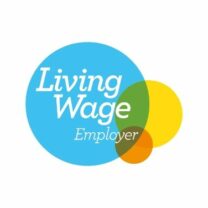1. How is the Procurement Act reshaping the housing sector, and what key challenges does it pose for landlords, contractors, and suppliers?
The Procurement Act represents a significant shift in how public sector procurement operates, particularly for housing providers. Its focus on greater transparency, accountability, and value for money is welcome, but it also introduces some challenges.
Landlords must demonstrate clear compliance and ensure every step of the procurement process is traceable. Alongside this, contractors face increasing pressure to deliver quality detailed reporting on their progress and costs, and suppliers are being asked to meet stricter standards while navigating these new expectations.
These changes make robust project management tools essential, ensuring all stakeholders have the clarity and resources to adapt effectively.
We will see a shift towards an even more safety-conscious industry where compliance, building safety, and social value requirements become the core values of procurement processes.
2. What do you think can support landlords and contractors in meeting the Act’s requirements for transparency and accountability?
The use and management of data is no longer a luxury—it is critical in supporting landlords to meet the Procurement Act’s demands.
Effective data processing and systems to track projects in real time help landlords and contractors by providing a single source of truth for costs, timelines, and transparency.
By centralising information, these tools improve visibility across the supply chain, enabling more informed decision-making and greater accountability at every stage. Ultimately, they ensure that projects run efficiently and provide a level of detail that supports the requirements of the new noticing regime.
At Procure Plus, we developed Schemes Plus, our in-house system, to provide a purpose-built application designed to handle complex project requirements, track performance metrics, and ensure full transparency at every stage of the project lifecycle.
3. The Act emphasises greater transparency in how contracts are delivered. What tools or strategies can landlords and suppliers use to meet these expectations without adding undue complexity?
The key to meeting the Act’s transparency requirements lies in simplifying complexity rather than adding to it. Efficient use of data allows landlords and suppliers to monitor progress budgets and spend all in one place. It removes the need for juggling multiple spreadsheets or systems, providing clarity at a glance. By offering user-friendly dashboards and streamlined reporting features, these tools reduce administrative burden while ensuring the transparency that the Act demands.
Systems that are designed to capture and efficiently use and present data must evolve alongside the changing needs of clients and the housing sector’s regulatory landscape. We find that it is easier to navigate when a system has adaptive features to ensure it remains aligned with the latest requirements, while continuous updates reflect client feedback and industry trends. A commitment to innovation allows it to offer a long-term solution that grows with its users, supporting them in navigating the complexities of the Procurement Act and beyond.
4. With the need for more collaboration across the supply chain, how can landlords ensure they’re supporting contractors and suppliers to deliver on shared goals?
Collaboration is the cornerstone of successful project delivery, and landlords play a pivotal role in creating the right environment for it. Providing contractors and suppliers with access to shared data ensures everyone is working with the same level of information and has clear visibility of their responsibilities. This promotes trust, reduces misunderstandings, and allows for proactive problem-solving. It’s also important for landlords to regularly engage with their supply chain, listening to their feedback and addressing any challenges as they arise, ensuring shared goals are met.
5. Looking to the future, how do you see project management evolving in the social housing sector, and what role will digital tools play in driving this change?
The social housing sector is on the cusp of a digital transformation, and effective use of data is at the heart of it. As the demands on landlords and contractors grow, digital tools will become indispensable. We expect to see even greater integration of these platforms with data-driven insights, enabling predictive planning and early identification of risks. The focus will be on empowering landlords and their supply chains to deliver not just compliance but also measurable value for their communities. Digital tools will play a key role in making processes more efficient, transparent, and aligned with the sector’s overarching goals.
Need help, advice or support?
Call us right now on:
Alternatively, schedule a call or meeting with one of our team
We have a team of experts ready and waiting to talk you through any queries you have, whether you’re a new or existing customer.






